Yewa: Orisha of purity and chastity in Santeria

Yewá is an Orisha (deity) deeply worshiped both in Africa and in Santeria or Afro-Caribbean traditions.. It represents loneliness, control and repression of feelings, being an emblem of female chastity. His domain extends to the hallowed grounds of the cemetery, and his essence is deposited in the coffins within the tombs.
Her cult, which traces its roots to the Yewa River in Africa, has been the subject of debate as to its origin. Although she was initially revered by the Mahi (ethnic group from the Dahomey region), the Yorubas assimilated her, recognizing her for her purity and beauty. In the Afro-Cuban tradition, it is associated with the white stripe of the rainbow, and is jealously protected as a symbol of virginity and purity.
Who is Yewá?
Yewá, whose name in the Yorùbá vocabulary translates as "our mother" (Yeyé = mother / Awá = ours), is an Orisha originally from the land of Dahomey, although it is also estimated that she lived in Egwadó, Nigeria. She is considered a fluvial Orisha, being the Goddess of the river that bears her name, which flows parallel to the Nigerian coastline and empties into the Lagos lagoon.
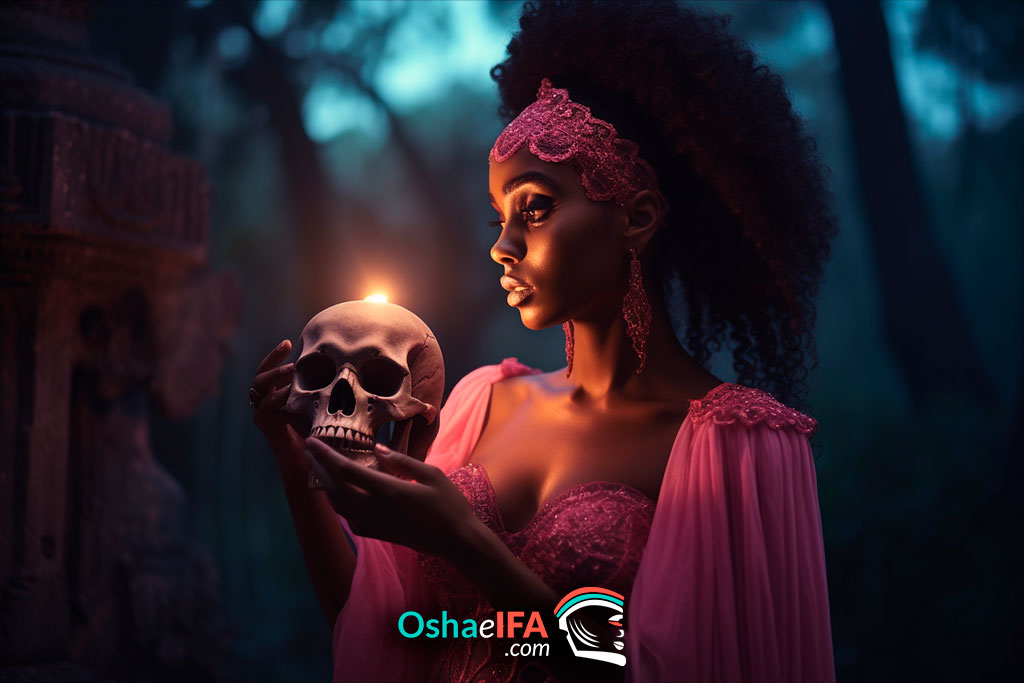
In Cuba, especially in Santiago, great adoration is paid to him. His connection with death is deep, guiding recently deceased spirits to the presence of the Orisha Oyá within the cemetery. In addition to her funeral role, Yewá is known for her sailing and fishing skills, and she has a deep affinity for gardens and dyed aura (vulture) feathers. She is said to be a representative of chastity, although she had a son that dried up in her womb, and since then, she has not been with any man again.
Origin and Evolution of Yewá in Different Cultures
Yewá, is a deeply revered deity, has its roots in Africa, specifically in the lands of Dahomey. However, the origin of it has been the subject of debate and controversy. In Africa, it is believed that she lived on the banks of the river that bears her name, but over time, her cult adapted and evolved, being influenced by various cultures and peoples.
Its influence and veneration have spread from Africa to Cuba, adapting to various traditions and cultures along the way. Despite the variations in her cult, what remains constant is her deep connection to death and the afterlife. In the Afro-Cuban tradition, it is associated with the white stripe of the rainbow and is considered a symbol of virginity and purity.
«In Africa, the Yewá river is where the goddess lives, but its origin generates controversy... It is from Africa, where this Orisha is confused. In Cuba, she seems to have taken characteristics from the different regional cults that adored her, without this seeming to hinder her cult, which is more limited every day. »
Iyewá: A Mystery, Arará A Yoruba Mystery, A Cuban Mystery – Eagle of Ifa

What's Yewa like?
Yewá is a woman of incomparable beauty, so attractive that even Shango he became obsessed with winning her over. In his cult, his initiates are expected to maintain their composure; they should not undress, talk about sentimental topics or show affection in his presence. Also, aggression is not allowed in her presence. These restrictions reflect the delicacy and respect that is due to this Orisha.

It is said that sometimes she dresses in masculine clothing and visits Olokun, enjoying the reefs and wrapping herself in sea linen. Although she is strong-willed, she is also mild-mannered and sweet, and her stern nature is comparable to that of Oduduwa. One story tells how she was seduced by Shango, who disguised himself as a gardener to enter her castle and attract her attention. After this event, ashamed, she Yewá asked to be sent to a place where no man could see her, and since then she has resided in the cemetery.
Yewa Characteristics
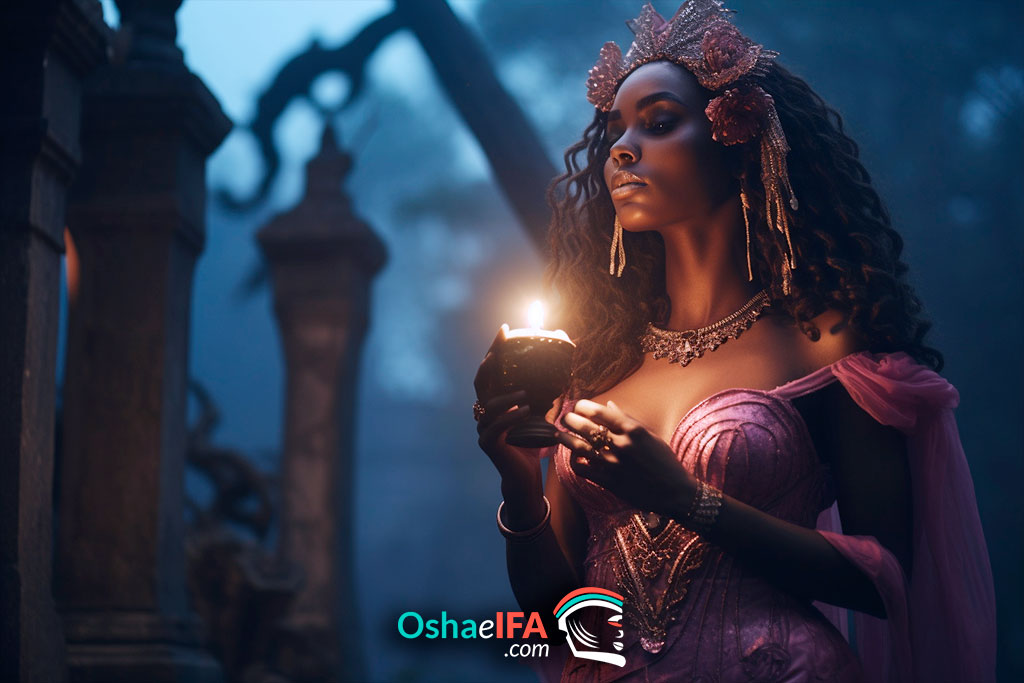
Yewá is a very complex deity that has been the subject of many stories and legends over the years. Her cult, although not as widespread as that of other Yoruba Orishas, is still fundamental to many Santeria practitioners. Some of the most distinctive characteristics of this Orisha are detailed below:
Yewa number
Yewa's number is 11 and its multiples. His day or allegorical celebration inherited from syncretism is usually commemorated on October 30.
Through the diloggún, this Orisha manifests itself through the Odun: osa (9), iroso (4) and ocana (1).
tureen or receptacle
Its receptacle or tureen is a basket made of wicker material that is covered with red and pink fabrics. Inside is a small house where the foundation of the Orisha is based. It is located at the top of the basket rack or in a special room for her.
Yewa Tools

Among his tools or attributes he has: 9 pink stones, 9 shields in the form of triangles, 9 angels, 1 hand of snails (cauries), Egún bone, a bell with a smaller one inside made of white or silver metal , a doll, a small jar, mother-of-pearl shells, cowries, 22 metal skeletons, and an owl bone.
Suit
Yewa's costume is made from pink colored fabrics. It consists of a dress that has a wide saya tied at the waist and a crown adorned with many snails.
Yewa colors
Its natural color is pink, red is also attributed to it, therefore, its elekes or necklaces are made with beads of those colors.
The sons of Yewá
Yewá's children, like the Orisha, are known for their pure and mysterious nature. Yewa is said to especially favor the young and virgin, reflecting her own pure and chaste essence. However, it is important to note that the "virginity of Yewa" is not strictly linked to the sexual concept, but rather to an idea of purity and protection of feminine energy.
What are the sons of Yewá like?
It is clear that Yewá is an Orisha representative of chastity, therefore, she does not accept promiscuity or disorder in her children at the level of her intimate relationships. Yewá, like Orisha, is a very severe mother; she does not like her children to be indecisive, disorganized, immoral or erratic. Another taboo for her children is that they should not eat any food from water (sea or river).
Their children are said to have a usually strong character personality, they can become dominant and demanding. They tend to be very moralistic and very little given to romantic relationships, and if they do have them, they are usually very long and stable. Normally, they enjoy intense spiritual strength, which is why they come to be recognized as important seers.
Often, it is believed that Yewá's daughters must be young and virgin to be initiated into her cult. However, this belief has been the subject of debate and controversy. Some argue that if Yewá's daughters marry or lose their virginity, they come under Oshun's domain. But if at any time they decide to abstain from the sexual act or become widows, Yewá can rule them again, even coming to possess them spiritually.
Myth Yewa Virgins – Obarainan Oloje
It is rare for Yewá to choose men as her direct sons, although they may serve in other roles within her cult.
How is Yewa consecrated or received in Santeria?
To begin, it is necessary to clarify that to participate or perform any ceremonial with this Orisha it is necessary not to have had sexual contact for at least 48 hours before. Nor can one be with the naked or semi-naked body in their presence. The sons of Yewa are consecrated in Kariosha by crowning Yewá with gold Oshun.
However, this settlement is the subject of much discussion, since it is estimated that it was originally settled directly, but at present there is no exact knowledge of its ceremonial. On the other hand, there are some religious houses that claim that they know the secrets for their consecration. In any case, the most advisable thing for the consecration of your children is to be sure that the iworo (santero) with whom they are going to consecrate has the appropriate knowledge to officiate such a ceremony.
The iworos in general can also receive the foundation of this Orisha, and are subject to the same recommendation made to their children: «receiving the foundation of Yewa entails great responsibility and maturity, since its initiates must be practitioners of a lifestyle based on morality, good customs and sentimental organization».
In Bahia, Brazil, Yewá is venerated in only three old houses due to the complexity of its ritual. The last time there was news of a direct Yewá settlement in Cuba was a long time ago.
What is asked of the Orisha Yewa?
This is a very delicate Orisha. Requests should be made to him that do not violate morals and good customs, rather, that they remain within their practices. You are asked to have a peaceful and calm life especially when you have reached maturity, and old age.
Stories (Pataki), Myths and legends of Yewá
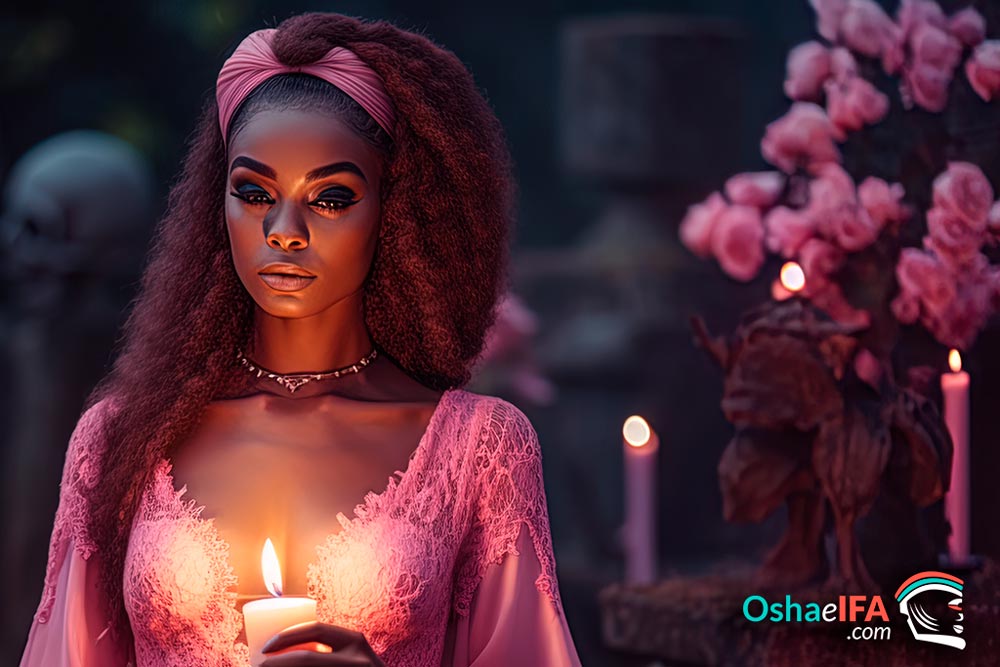
These are some of the Yewa's most important stories (patakies) in Yoruba mythology, which reflect their importance and place in Afro-Caribbean religion and cultures.
Orunmila's Refuge: The Alliance with Yewa
In this story, Awó Yagadá was the name of Orunmila in the land of Osha Lakueré Inle, which was the land of Yewa, where Orunmila always had big problems with Ikú (death), which was very powerful.
On one occasion, Ikú went with his children in search of Orunmila to kill him, but he, who had Koborí Eledá with Ejá-Tuto (head praying with snapper), was asleep and during his sleep, he dreamed that death was going to look for him. to finish him off. When he woke up Osode was made, and the odu of divination was Edibere. He became Ebó and in this the rat arrived singing: "Okute bayi niwa ire, oba ofa omo inle, oba ifa adele nifa".
Where the mouse used to take the Ikines (adelé) that Orunmila had prepared for his consecrations and introduced them into a tunnel that he had under the floor of the house.
When Ikú arrived, Orunmila escaped through the tunnel that the mouse had made and left glued to the beach (Onika), where the river flowed, which was the land of Iya Orí Igí.
There he met Yewá, who was washing his clothes. Orunmila greeted her, when she saw him she met him and answered her greeting. He told her what was happening, Yewa told him: Hide under the basket. She covered him with the basket and with the cloth that she had on top of her, which was the clothes she wore, which was pink in color and adorned with many snails.
When Iku arrived before Yewa, he asked her about Orunmila. She invited him to eat Akara bibo, olelé and aguidi. She then showed Iku to one of the paths or trails and told him: That's where he ran. When Iku took the path that Yewa pointed out to him, he took the cloth and the basket from her and took Orunmila to her house. There she told him: The only thing I eat is a young lady goat (Aké), goose and a lot of aguidi, akara, olelé and yams. Orunmila told him: I will eat everything except goose. So she ate with Yewa.
The Ita of the Orisha Yewa is done through Ifa (Orunmila).
After he thanked her for having saved him from Ikú and for having given him food, Yewa told him: I only have this room, so you will sleep at the door.
At night, Orunmila, feeling a special connection with Yewa and noticing the loneliness that she had experienced for a long time, managed to seduce her (Ofikale).
When several days passed and Ikú had lost track of Orunmila and since he was full with the food that Yewa had given him, he did not pursue him with such zeal, so Orula was able to return to his home in the land of Osha akuere, using the same secret tunnel through which he had escaped. Not being persecuted by Ikú, he thanked her and every day sang: “Osiba Yewa mud, beni Yewa ile, awoni moyoye iku, Yewa inwa obasi dajon omonifa”.
After a certain time, Yewa was pregnant (Oboñú) by Orunmila, and when she was certain of this situation, she headed to the land of Osha Lakuere in search of Awó Yagadá.
When he arrived at Orunmila's house, and he found out about the problem, he made him Osode and Edibere saw him and said: -You are going to give birth to a son of Ifá, but this son of yours you cannot do to him what you did to the previous ones, that you gave them to Iku. Awó Agadá told him: Awofakan must be prepared for the fetus (Omotitun), so that he can be born and become great on earth.
Then they gave him Awofakan (Orula's Hand) to the fetus in the womb of Yewa, and took Odu Toyale out of Otura Sa which was the land of Yewa. Where Odi Ogbe and Otura Osa made a pact forever, to save all the children of Edibere even if they were children of Shango, through Yewá, and that whenever Odigbere was seen in an Osode a pregnant woman (Oboñú) gave Awofakan to the fetus, so that it would be saved. And since then Odigbere is saved by Otura Sa, and Otura Sa is saved by Odigbere.
And when they fed the Orisha they sang: "Omo ni ifa baba adale nifa obara lalakuetun awo oni komomoye iñaga omo Yewa komomoye iku obara lalakuetun."
Where Orunmila and Yewa ate from the young lady goat (Aké) and she swore that everything she spoke would be through Orunmila's mouth.
Yewa's Vanishing on the Mount
It happened that in the land Ababa Nogba Okonile located between the river and the sea, Yewa lived quietly. She used to dress in a beautiful and exotic way. She wore gazing dresses, with lace and woven with colored threads and ribbons, especially red ones.
One day, she wanted to go to the mountains to look for the ingredients to dye her clothes, but before that, she went to perform divination with orunmila. He was told the sacrifices that he had to make to prevent her from getting lost in the mountains, thus being able to return, safe and sound, to her house. Yewa listened to all the advice given but, she did not do the recommended eboses.
The next day, he went out into the mountains as planned. She was eager to find her jewelry and mariwó to make her dresses. As he walked through the dense forest he got lost. Desperate trying to find the way out, she went deeper into the bush.
Her brothers scared when they saw that she did not return, they went out into the mountains to look for her, but it was impossible for them. They quickly made the sacrifices that were pending but still, it was all useless. They could not bring her back, only her spirituality returned.
Thanks to this story, when the foundation of Yewá is going to be made or assembled, one must go to the mountain with a jar that must be prepared with: river water and sea water in that place. There a secret ritual is performed with all the elements of the Orisha: the jar, pita de corojo, mariwó, a mask and the corresponding animals.
You can read: All about Babalú Ayé, the Orisha of diseases and healing
Yewá in the Catholic Religion (syncretism)

The Orisha Yewa is syncretized in the Catholic religion with the Virgin of Monserrat. Its comparison with the «Mariano» cult is totally logical because the Virgin Mary is a symbol of chastity, just as Yewa is for the Yorubas.
In the case of the Virgin of Monserrat, her image is always represented holding the baby Jesus, in totally natural attitudes of a mother, but in addition to that, she usually carries a silver bouquet in her right hand. The flower as a symbol is very common in the worship of Yewa and is also an icon of the adoration of the Virgin.
On the other hand, it can also be syncretized with Our Lady of the Forsaken, with whom it once again shares the identification with the Marian cult. In addition, it matches the color of their clothes, since this virgin in some of her presentations is covered with red flowers. In addition to this, both can be recognized as defenders of good causes, protectors of the innocent, martyrs, suffered, lonely and helpless.
Adimuses or offerings to Yewa
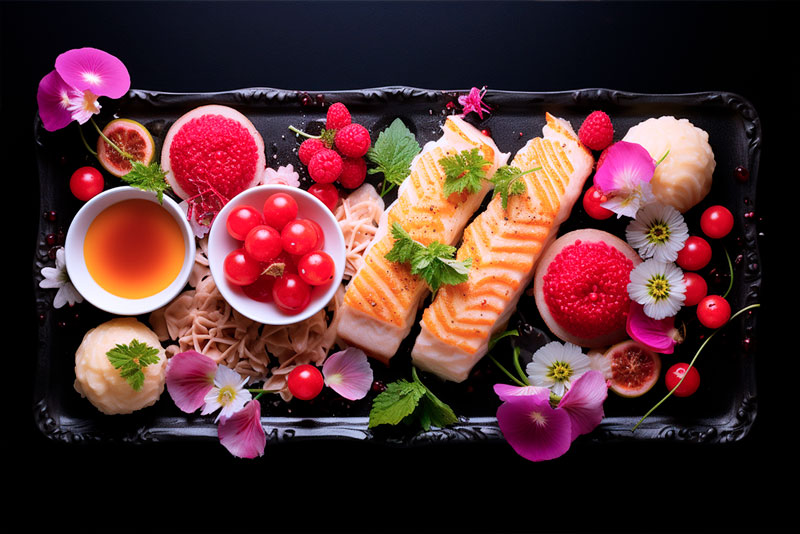
In Santeria, Yewa can be entertained by offering: fish with sauces and garnished with tomato, gofio balls with fish, peanut balls. All kinds of pink fruits and flowers.
What does this Orisha eat?
The animals that are sacrificed to him must be young and virgin. He is offered: goat, white hens, white pigeons, white guinea.
Yewa Herbs
- Fennel.
- tua tua
- Cypress.
- Gold button.
- White Bleo.
- Cotton .
- Prodigious.
- You can also use all the herbs corresponding to Oya.
Yewa Prayer (Translated)
I praise and pray to the spirit of the Cemetery. Our mother, mother Yewa.
Cover me with your strength from the infamous and immoral enemies.
Deliver me from the snares of death and disease.
Accompany me with your peace and tranquility.
Make me worthy of your blessing and fill me with all your spirituality.
Give me clarity and clairvoyance in the spiritual world of which only you know the secrets.
I praise you today and always Goddess of flowers and red roses.
Exalted woman crowned among the gardens of the world and the holy field.
My mother, our mother, immaculate mother.
Blessed and adored Yewa, I praise you today, tomorrow and always.
Ash.
Iyewa Secret Prayer:
Yewa Ale Olu Ologbo Suje Odu Kala Olula Agbo Dudu Ou Dogo Soni
Ritual with Yewa for health well-being:
This is done when the sick person is elderly. The Orisha is fed two white hens and a little blood is reserved in a gourd with red wine. This will be used to make a bath asking for the health of the person.
Phrases:
Yewa says: "My omo, the purer your intentions and correct your actions, my blessings will never be lacking."
Yewa says, "The false, traitors, and dark at heart have their place reserved in my house ahead of schedule at their destination."
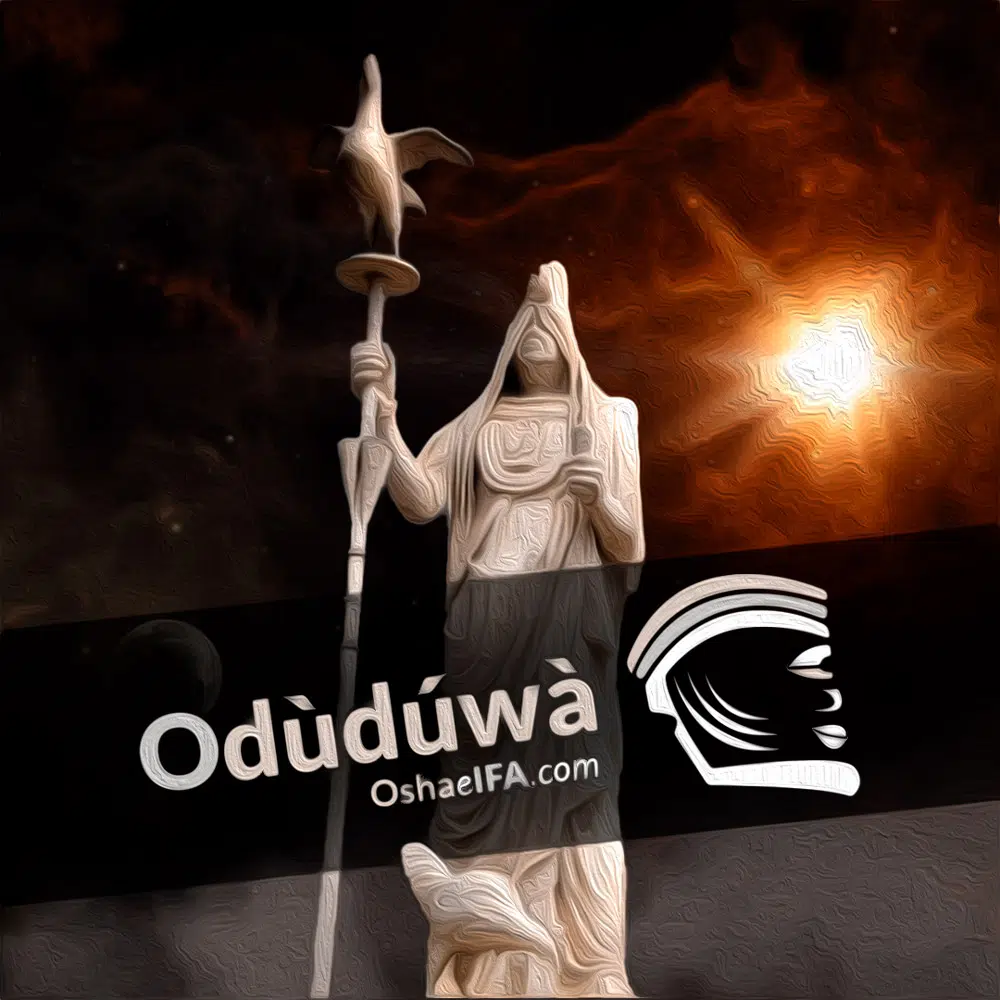

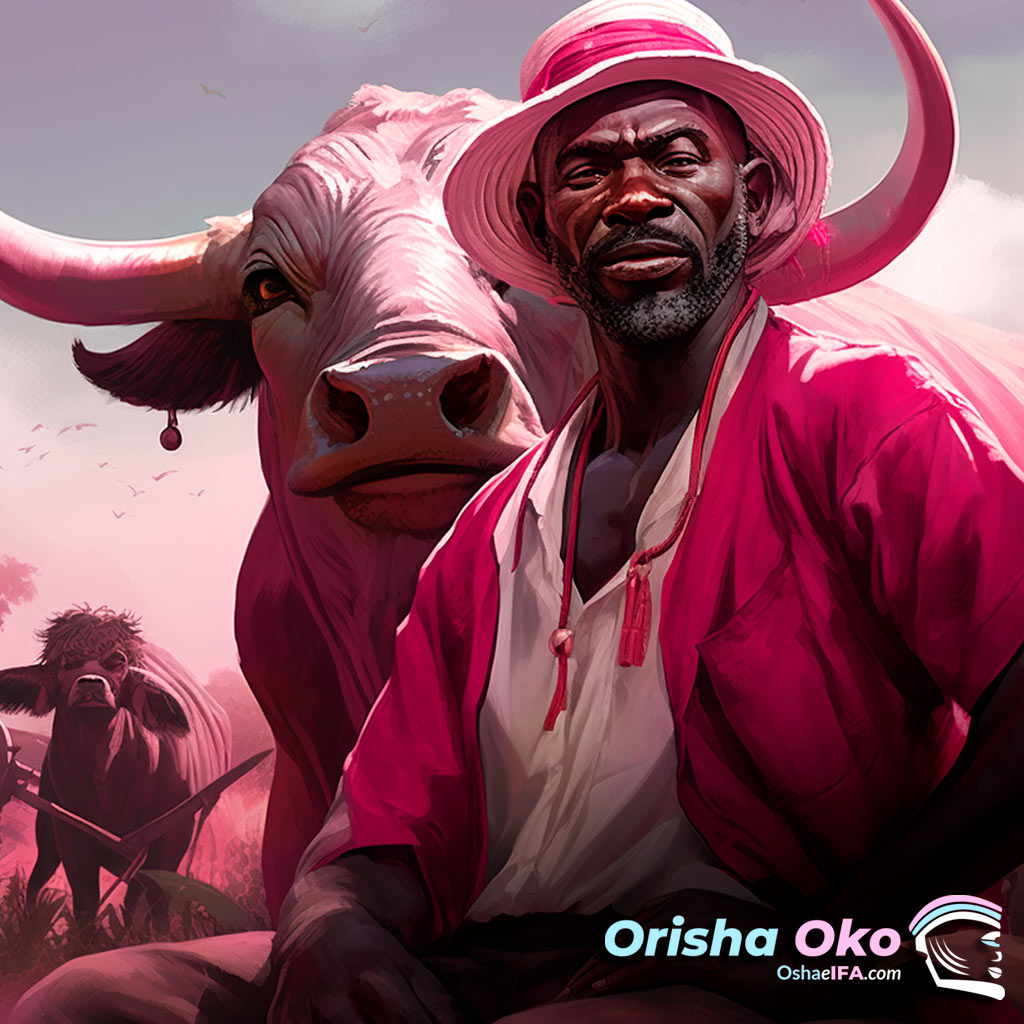
yewa don't eat/receive hens or chikens. It is a ewó.